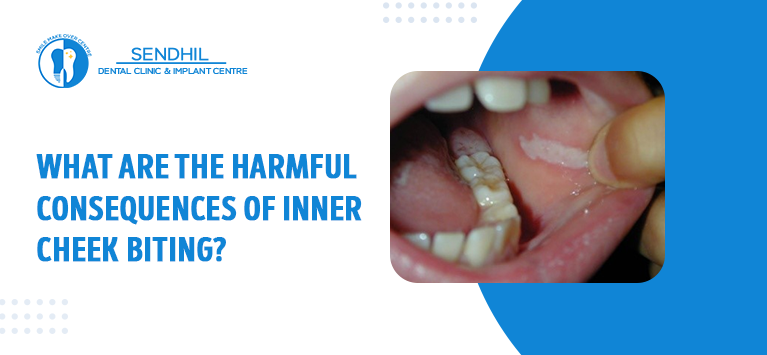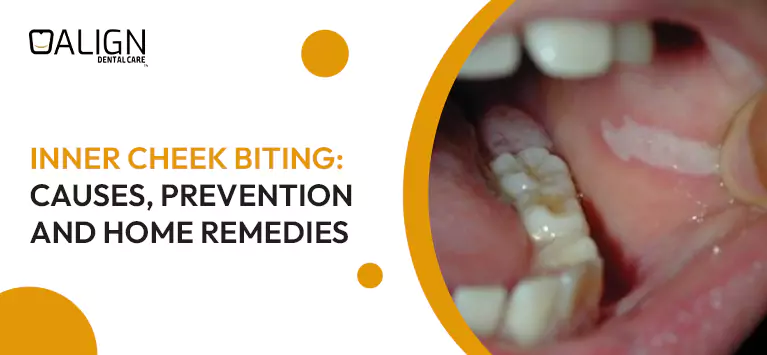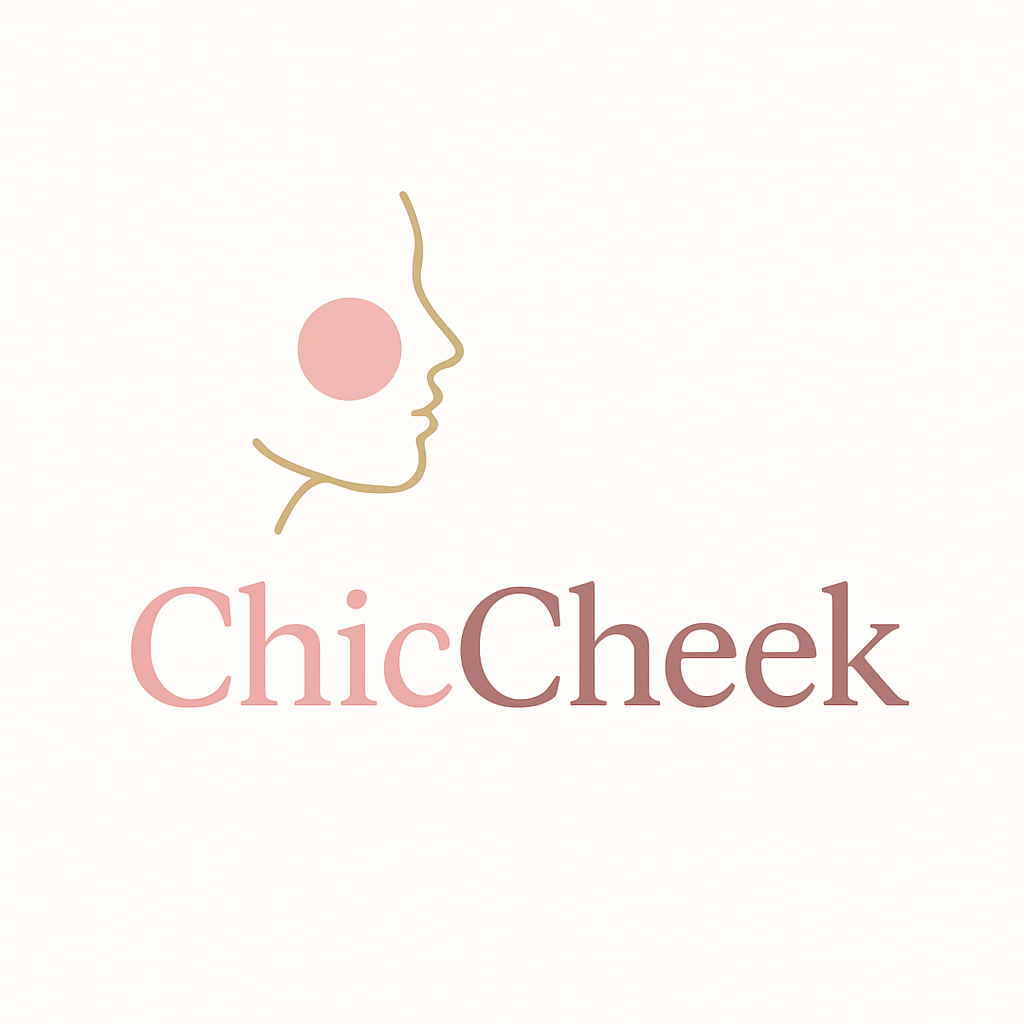Are you tired of the pain and embarrassment caused by biting your cheek? You’re not alone.
Cheek biting can turn into a frustrating habit that leaves your mouth sore and uncomfortable. But the good news is, you can stop it. You’ll discover simple, effective ways to break free from cheek biting for good. Keep reading to find out how to protect your smile and feel confident again.
Reasons Behind Cheek Biting
Biting your cheek is a common habit many people face. It can happen once in a while or become a frequent problem. Understanding why you bite your cheek helps in stopping it. Various reasons cause this habit. Some relate to stress, others to physical issues inside the mouth. Knowing these causes gives you a clear path to find a solution.
Stress And Anxiety
Stress often leads to nervous habits like cheek biting. It acts as a way to release tension. People may bite their cheeks without noticing during stressful moments. Anxiety can increase muscle tension in the mouth. This tension can cause accidental biting of the inside cheek.
Accidental Biting Due To Teeth Alignment
Teeth that do not line up well make biting the cheek easier. Misaligned teeth or a bad bite can trap cheek tissue. This causes frequent accidental bites while chewing or talking. The problem increases if teeth are sharp or uneven.
Oral Habits And Nervous Tics
Some people develop habits like cheek biting as a nervous tic. It becomes a repeated action done without thinking. These habits can start in childhood or adulthood. They often occur during boredom or deep concentration.
Mouth Sores And Irritations
Sores or irritation inside the mouth can cause cheek biting. When the cheek feels sore, people may bite it to relieve discomfort. This can make the problem worse by causing more pain and damage. A cycle of biting and irritation can develop.
Dental Issues And Treatments
Dental work or problems can lead to cheek biting. New braces, fillings, or dentures may irritate the cheek. The mouth needs time to adjust to changes. During this period, biting the cheek may happen more often.
Identifying Triggers
Identifying triggers is the first step to stop biting your cheek. Understanding what causes this habit helps you control it better. Sometimes, cheek biting happens without you noticing.
Being aware of triggers can reduce the frequency of cheek biting. It also helps you replace the habit with healthier actions.
Physical Triggers
Physical causes include sharp teeth or braces. These can accidentally cut your cheek. Stress or tiredness can also make your mouth tense. This tension may lead to biting your cheek.
Emotional Triggers
Feelings like anxiety or boredom often cause cheek biting. It acts as a way to release nervous energy. Some people bite their cheeks when they are upset.
Environmental Triggers
Certain places or situations can increase cheek biting. For example, being at work or school may trigger it. Loud noises or crowded spaces might also cause stress, leading to cheek biting.
Behavioral Techniques To Stop
Stopping cheek biting needs more than just willpower. Changing habits requires clear steps and focus. Behavioral techniques help by training the mind and body. These methods guide you to become aware and control the urge to bite.
Practice builds new habits. It makes it easier to stop biting the cheek over time. Simple actions and consistent effort work best for lasting change.
Identify Triggers
Know what causes cheek biting. Stress, boredom, or anxiety can trigger it. Keep a journal to track moments when you bite. Understanding triggers helps you avoid or manage them.
Use A Substitute Action
Replace cheek biting with a safe habit. Chew sugar-free gum or bite on a soft object. This keeps your mouth busy and reduces the urge to bite.
Practice Mindfulness
Pay attention to your mouth and feelings. Notice when you feel the urge to bite. Take deep breaths and focus on the present moment. Mindfulness reduces automatic biting behavior.
Set Small Goals
Start with easy steps. Aim to avoid cheek biting for short periods. Gradually increase the time. Celebrate small wins to stay motivated.
Use Reminders
Place notes or alarms to remind yourself not to bite. Visual or sound cues help break the habit. These prompts increase awareness throughout the day.

Credit: www.sendhildental.com
Home Remedies And Care
Cheek biting can cause pain and irritation inside the mouth. Home remedies help soothe the area and prevent further damage. Simple care steps reduce discomfort and speed up healing.
Maintain Good Oral Hygiene
Keep your mouth clean to avoid infections. Brush teeth gently twice a day. Use a soft toothbrush to protect sore areas. Rinse with salt water to reduce bacteria. Avoid harsh mouthwashes that may irritate the cheek.
Apply Cold Compress
Cold compresses reduce swelling and numb pain. Wrap ice cubes in a clean cloth. Hold it gently against the cheek for 10 minutes. Repeat several times a day as needed. Avoid applying ice directly on the skin.
Use Aloe Vera Gel
Aloe vera soothes and heals skin quickly. Apply a small amount of fresh aloe gel inside the mouth. Let it sit for a few minutes before rinsing. Do this two to three times daily. It helps reduce inflammation and discomfort.
Avoid Irritating Foods
Spicy, salty, and acidic foods worsen cheek bites. Stick to soft, bland foods until healing occurs. Drink plenty of water to keep the mouth moist. Avoid chewing gum and hard snacks that may irritate.
Practice Mindful Chewing
Pay attention while eating to avoid biting cheeks. Chew slowly and use both sides of the mouth. Try to relax the jaw muscles during meals. Mindful chewing prevents accidental bites and promotes healing.
When To Seek Professional Help
Cheek biting can become more than just a bad habit. Sometimes it signals a deeper issue that needs expert care. Knowing when to see a professional can save you pain and prevent serious damage.
Persistent cheek biting that causes pain or sores needs attention. If home methods do not stop the biting, help is necessary. Early treatment can protect your mouth and improve your comfort.
Signs Of Serious Injury
Look for open wounds or deep cuts inside your cheek. These injuries may not heal well on their own. Swelling or bleeding that lasts more than a few days is a warning.
Chronic Pain Or Discomfort
Constant pain while eating or speaking is a concern. This may mean the biting has caused damage. A professional can diagnose the problem and suggest treatment.
Behavior That Won’t Stop
Biting your cheek despite trying to stop is a red flag. It might be linked to stress or anxiety. A dentist or doctor can help find the cause and offer solutions.
Signs Of Infection
Redness, pus, or fever near the bitten area signals infection. Infections need medical treatment to prevent spreading. Do not ignore these symptoms.
Damage To Teeth Or Jaw
Cheek biting can sometimes harm your teeth or jaw alignment. Clicking, pain, or difficulty opening your mouth needs expert care. A dental check-up can assess the damage.

Credit: www.aligndentalcare.lk

Credit: sportingsmiles.com
Frequently Asked Questions
Why Do People Bite Their Cheeks Often?
Cheek biting can be a habit, stress reaction, or caused by misaligned teeth.
How Can I Stop Biting My Cheek Subconsciously?
Keep your mouth busy with gum or a soft snack to avoid cheek biting.
What Are Simple Ways To Prevent Cheek Biting?
Chew slowly, avoid talking while chewing, and manage stress to reduce cheek biting.
Can Cheek Biting Cause Health Problems?
Yes, it can lead to sores, infections, and pain if it happens often.
When Should I See A Doctor For Cheek Biting?
Visit a doctor if biting causes pain, bleeding, or sores that don’t heal.
Does Stress Increase The Chance Of Biting Cheeks?
Stress can make cheek biting worse by increasing nervous habits and muscle tension.
Conclusion
Stopping cheek biting takes time and patience. Pay attention to your habits daily. Try chewing gum or using a mouth guard. Keep your mouth busy with healthy snacks. Practice stress relief to reduce nervous biting. Notice when you bite and gently stop yourself.
Small changes add up to big results. Your cheeks will heal with care and effort. Stay consistent, and you will see progress soon. Keep these tips in mind for a healthier mouth.
Munia Akondh is a passionate skincare writer with a foundation in life sciences, which gives her a unique scientific perspective on beauty and skincare. As a digital marketer and skincare geek, Munia combines her love for product research, skin health, and marketing to create insightful content that resonates with beauty enthusiasts. Her expertise spans from understanding skincare ingredients to keeping up with the latest trends, making her a trusted voice in the industry.
